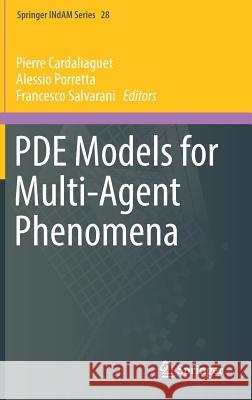Pde Models for Multi-Agent Phenomena » książka
topmenu
Pde Models for Multi-Agent Phenomena
ISBN-13: 9783030019464 / Angielski / Twarda / 2019 / 218 str.
Kategorie:
Kategorie BISAC:
Wydawca:
Springer
Seria wydawnicza:
Język:
Angielski
ISBN-13:
9783030019464
Rok wydania:
2019
Wydanie:
2018
Ilość stron:
218
Waga:
0.50 kg
Wymiary:
23.39 x 15.6 x 1.42
Oprawa:
Twarda
Wolumenów:
01
Dodatkowe informacje:
Wydanie ilustrowane











